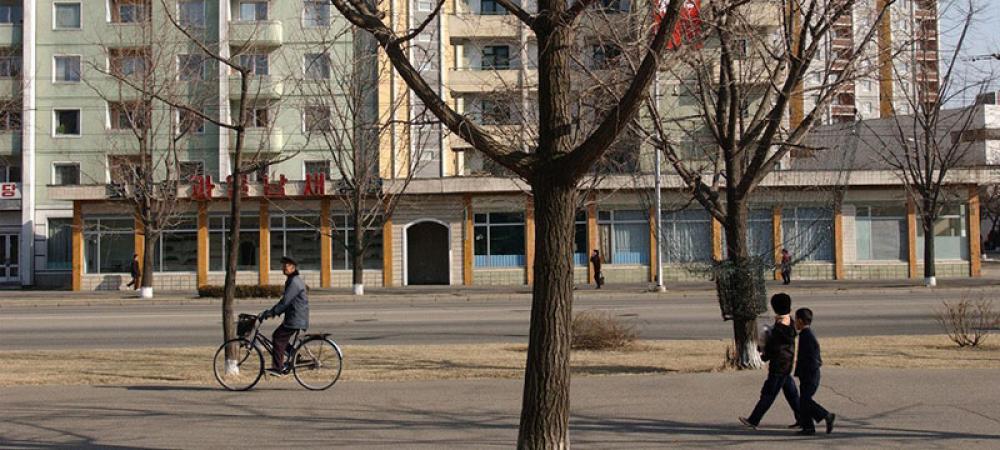Just Earth News | @justearthnews | 25 Mar 2022, 01:54 am Print
 North Korea
North Korea Image: UNICEF/UNI102364/Jeremy Horner
New York: The UN chief on Thursday strongly condemned the launch of an intercontinental ballistic missile by the Democratic People’s Republic of Korea, more commonly known as North Korea, its first such long-range test, since 2017.
In a statement, issued by his Spokesperson, Secretary-General António Guterres called the move “another breach” of DPRK’s 2018 self-imposed moratorium that is in “clear violation of Security Council resolutions.”
North Korea has reportedly conducted 13 weapons launches this year, prompting concern in the United States, that leader Kim Jong-Un, is determined to make progress on developing weapons capable of carrying nuclear warheads to the US mainland.
South Korean and Japanese flight data indicated that the long-range missile flew higher and longer (670 miles, or 1,080 km) than any of North Korea's previous tests before crashing into the sea west of Japan, according to news reports.
Japanese authorities reportedly indicated that it appeared to involve a “new type” of ballistic missile.
Significant escalation risks
Although North Korea had announced that it put its intercontinental ballistic missile (ICBM) and nuclear tests on hold, the country has since defended their use as weapons of self-defence.
“The launch of the long-range missile risks a significant escalation of tensions in the region,” the top UN official said, urging the DPRK to “desist from taking any further counter-productive actions.”
Mr. Guterres concluded his statement by reaffirming the UN’s commitment to working with all parties “in seeking a peaceful diplomatic solution for the complete and verifiable denuclearization of the Korean Peninsula.”
- Ali Khamenei (1939–2026): Iran’s Supreme Leader who ruled with an iron grip
- Trump signs 10% global tariff, says it takes effect ‘almost immediately’
- BJP wins a seat in Bangladesh — But not the one you think!
- Meet Shabana Mahmood: Could she take over as UK’s first Pakistani-origin Muslim PM?
- Dalai Lama's Office breaks silence on Epstein claims





-1763561110.jpg)
